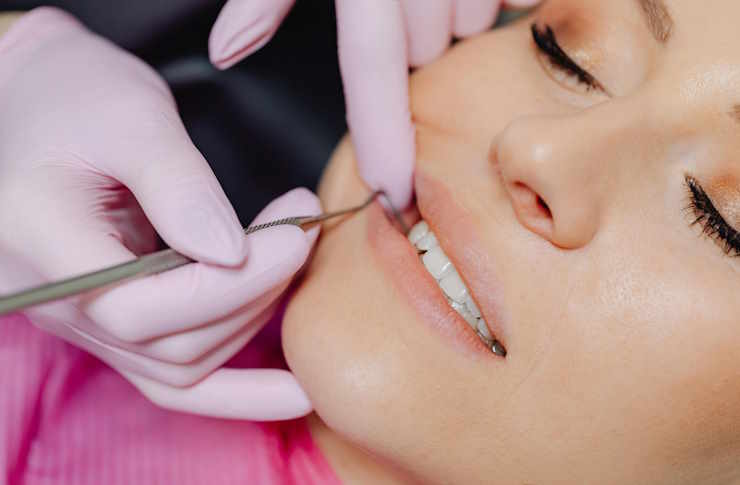Explore Opportunities to Participate in Dental Implant Research Programs
Dental implant research initiatives occasionally offer individuals the chance to be considered for participation in ongoing studies. These programs may seek qualified participants to assist with data collection or treatment evaluations. Those interested in learning more about such studies can review eligibility details and submit interest for potential selection. Participation is generally voluntary and subject to approval based on various screening factors. Always read all provided information carefully before submitting any form of application.

What are dental implant research programs?
Dental implant research programs are scientific studies designed to investigate new implant technologies, materials, or techniques. These programs aim to improve the success rates, longevity, and overall patient experience of dental implant procedures. Researchers may focus on various aspects, such as implant design, surgical techniques, bone grafting methods, or post-operative care protocols. By participating in these studies, volunteers play a vital role in shaping the future of dental implant treatments.
Who can participate in dental implant research studies?
Eligibility criteria for dental implant research studies vary depending on the specific goals of each program. Generally, researchers look for adults who:
-
Are in good overall health
-
Have one or more missing teeth
-
Have adequate bone density in the jaw
-
Do not smoke or are willing to quit
-
Are not pregnant or nursing
-
Have no active periodontal disease
Some studies may have additional requirements or focus on specific demographics, such as older adults or individuals with certain medical conditions.
What are the benefits of participating in dental implant research?
Joining a dental implant research study can offer several advantages:
-
Access to innovative treatments: Participants may receive state-of-the-art implants or procedures not yet available to the general public.
-
Reduced costs: Many studies offer free or discounted treatments to participants.
-
Comprehensive care: Research programs often provide extensive follow-up care and monitoring.
-
Contributing to scientific advancement: Participants help improve dental implant technology for future patients.
-
Personalized attention: Researchers closely monitor participants’ progress and address any concerns promptly.
How can I find and apply for dental implant research studies?
To find and apply for dental implant research studies:
-
Check clinical trial databases: Websites like ClinicalTrials.gov list ongoing studies.
-
Contact local dental schools: Many universities conduct dental research and recruit participants.
-
Inquire at dental practices: Some private practices participate in research initiatives.
-
Join research registries: Sign up for databases that match volunteers with relevant studies.
-
Attend dental health fairs: Researchers often recruit participants at community events.
When applying, be prepared to provide detailed medical history and undergo initial screenings to determine eligibility.
What should I consider before participating in a dental implant study?
Participating in dental implant research requires careful consideration. In the United States, dental implant studies adhere to strict ethical guidelines and regulatory oversight. However, potential participants should:
-
Understand the study’s purpose and duration
-
Review all potential risks and benefits
-
Consider time commitments for appointments and follow-ups
-
Inquire about compensation or cost coverage
-
Ensure confidentiality of personal information
-
Confirm the right to withdraw from the study at any time
-
Discuss participation with their regular dentist or healthcare provider
It’s crucial to ask questions and feel comfortable with all aspects of the study before committing to participate.
What is the typical process for participating in a dental implant study?
The process of participating in a dental implant study typically involves several steps:
-
Initial screening: Researchers assess eligibility through questionnaires and preliminary examinations.
-
Informed consent: Participants review and sign documents explaining the study’s details and their rights.
-
Baseline assessments: Comprehensive dental exams, x-rays, and sometimes medical tests are conducted.
-
Treatment phase: Participants receive the dental implant or related procedure under study.
-
Follow-up appointments: Regular check-ups to monitor healing and collect data.
-
Final evaluation: Researchers assess the outcomes at the study’s conclusion.
-
Long-term follow-up: Some studies may continue to track participants for extended periods.
Throughout the process, participants work closely with research teams to ensure their safety and the study’s integrity.
Participating in dental implant research programs offers a unique opportunity to contribute to scientific advancements while potentially receiving innovative treatments. By understanding the process, considering the implications, and carefully evaluating available studies, interested individuals can make informed decisions about their participation. As dental implant technology continues to evolve, these research initiatives play a crucial role in improving outcomes and expanding treatment options for patients worldwide.




